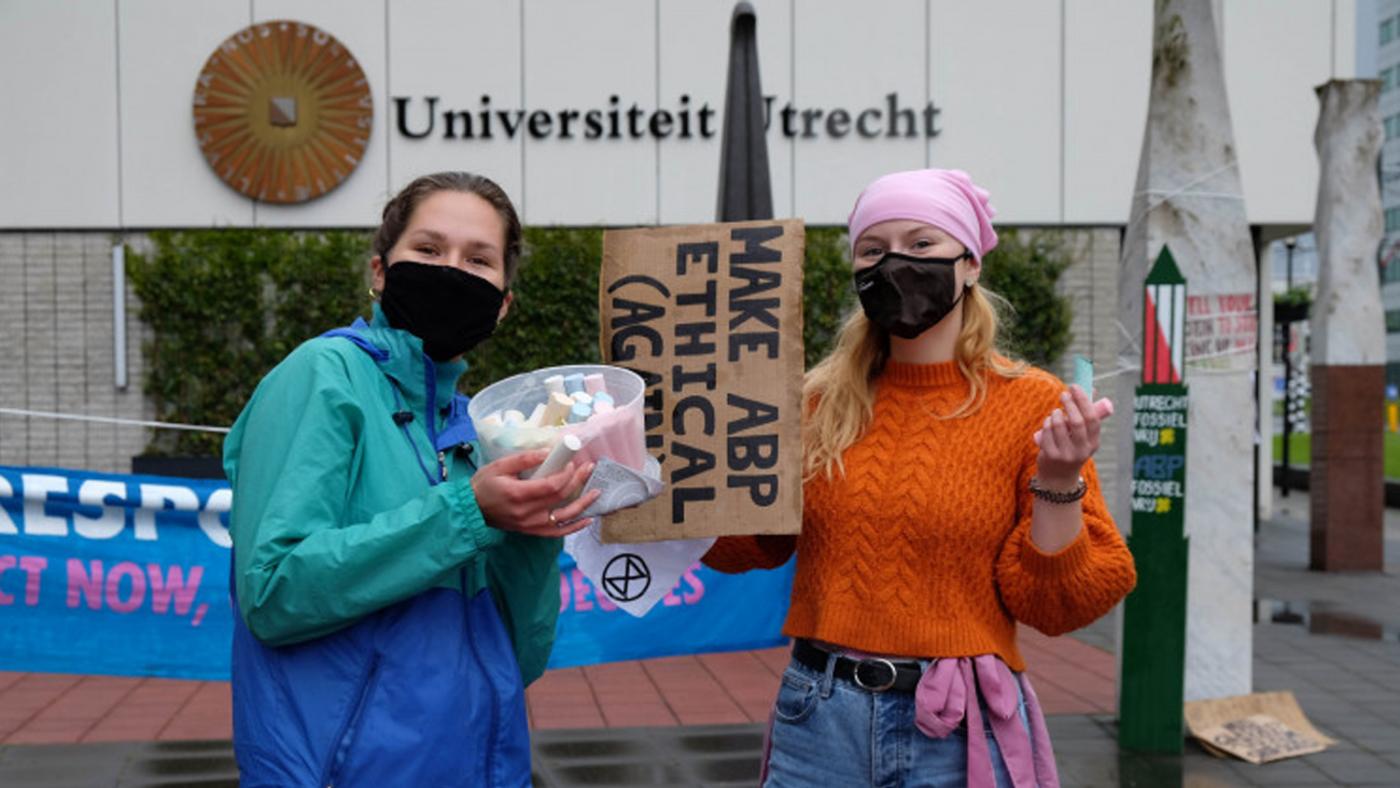How can ABP exert more influence to make companies sustainable?

It was big news when the pension fund suddenly announced that it would no longer invest in oil, gas and coal companies. Over the next 18 months, ABP is going to sell its shares in companies involved in the production of fossil fuels. However, the fund will continue to invest in electricity companies, the automotive industry, airlines, and other sectors that still make extensive use of fossil fuels.
For years, activists tried to push the pension fund for government and education employees in a more sustainable direction. One of their main objections was the fact that committed scientists do not want to see their pension money being invested in companies that contribute to climate change.
 In June, following the protests of academics, the Association of Dutch Universities (VSNU) set up a committee to examine the issue. Their advisory report (in Dutch) came out last week. Dirk Schoenmaker, Professor of Banking & Finance at the Rotterdam School of Management at Erasmus University, is the chair of the committee. He calls on ABP to ensure that the companies in which it invests achieve the climate targets.
In June, following the protests of academics, the Association of Dutch Universities (VSNU) set up a committee to examine the issue. Their advisory report (in Dutch) came out last week. Dirk Schoenmaker, Professor of Banking & Finance at the Rotterdam School of Management at Erasmus University, is the chair of the committee. He calls on ABP to ensure that the companies in which it invests achieve the climate targets.
Were you impressed by ABP's decision or is it just a drop in the ocean?
“It’s more than a drop but our job is not to rejoice. ABP has a major responsibility in the sustainable transition. This move has not gone unnoticed, but the most important thing is that the companies in which ABP invests make a similar move. That is the real transition. Our recommendations are a message to them too.”
Photo: Sustainable Finance Lab
If companies don't change, they will not last long
Last month, ABP concluded that there was “very little opportunity” to persuade oil producers to switch to renewable energy. Nevertheless, the pension fund will keep investing in companies that use fossil fuels, in the hope that they do become more sustainable down the line. Do you think they will?
“Definitely not the oil producers. ABP is telling other companies, as are we, to get started. But ABP needs to tighten up the criteria in order to set the transition in motion. Not everyone is up to speed on day one, but companies must make progress anyway. This has to be tested annually, almost like at school. If companies do nothing, talk to them about it and issue a warning. If that doesn’t work, then our advice to ABP is to stop investing.”
Changing the course of electricity companies, the automotive industry, and airlines towards sustainability is something that requires a lot of time and effort, assuming that they succeed in the endeavour. Are you confident that ABP can turn that ambition into reality?
“If companies don’t change, they will not last long. A company making only petrol-driven cars will soon be a thing of the past. Sooner or later, the government will take things more seriously and the tax on CO2 emissions will go up even more. Companies that are big emitters will then find that their products are no longer competitive. I assume not all companies understand this, and in that case it would be sensible – for the benefit of ABP’s yields – not to invest any more money in them. So the best scenario is to work with investors to achieve a sustainable transition.”
How can they do that?
“Our advice to ABP is not to spread the investments too thinly over a lot of companies but to make more choices. Then you get bigger stakes in a smaller number of companies. In that way you have a greater influence and more time to keep an eye on the progression. So we encourage them to invest more in renewable energy. They are already doing so but could do more, because that’s the future.”
Choose only the companies that are doing things right and that want to do things right
The advice is not binding. Is ABP going to take it seriously?
“I am very hopeful that the advice will be heeded. They definitely want to get started. And we consider it crucial that the advice dovetails with the reality in which ABP operates, so that it not only looks good on paper but it is also genuinely usable. The economy is still extremely dependent on fossil energy, so it’s important not to get rid of those companies in one fell swoop but rather to work together towards a sustainable alternative.”
How long will your committee still be needed now that ABP has new ambitions?
“Our assignment is for two years, with a total of four advisory reports. After that, we will see. The next advisory report is about the food chain, because that involves a lot of emissions too. But ultimately the most important thing is that ABP’s approach is in good shape. Choose only those companies that are doing things right and that want to do things right. When that happens, you can achieve a lot.”
HOP/ Josefine van Enk